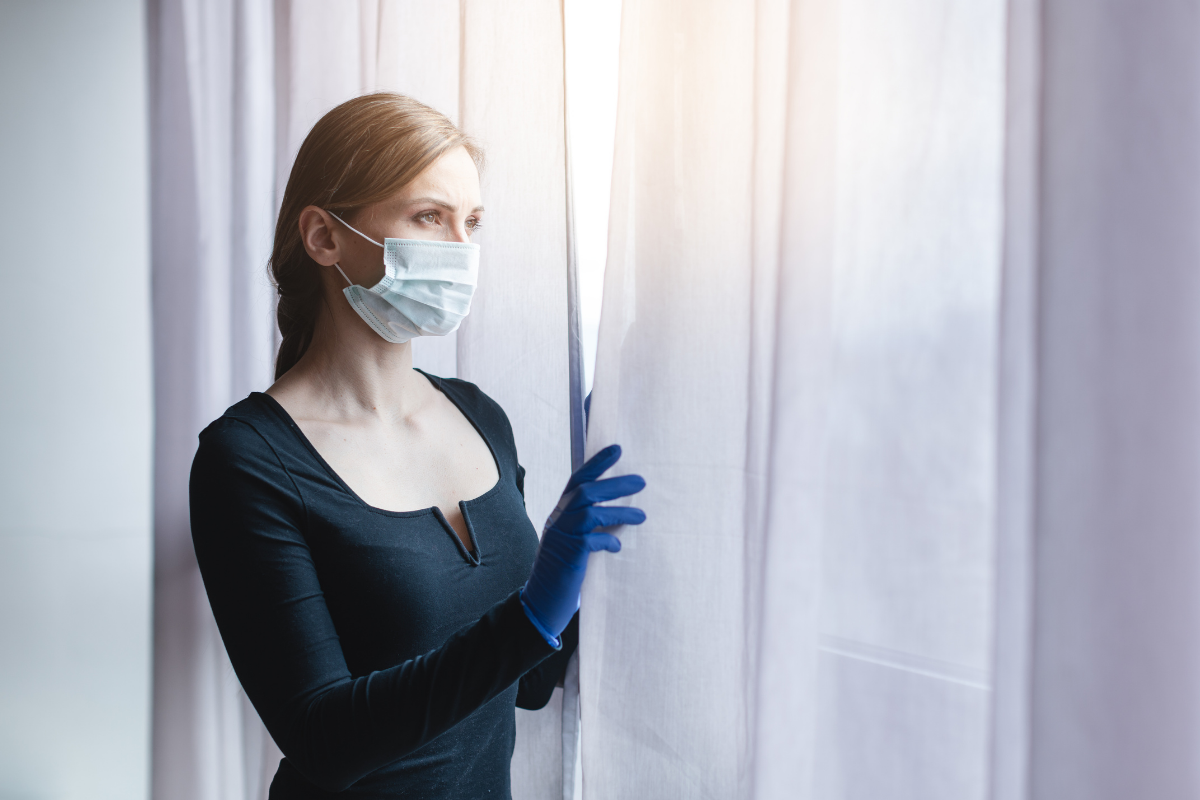
The U.S. Centers for Disease Control and Prevention (CDC) may shorten Covid quarantine time for people who were exposed to Covid-19 patients.
Some medical experts believe that relaxing the recommended two-week Covid quarantine time could make more people follow.
CDC guidelines urge people who were exposed to a person who contracted the virus to quarantine at home for 14 days, even if they tested negative for the virus. According to scientists, this helps contain the spread of the virus before they manifest symptoms or from those who do not develop any symptoms.
However, CDC Director Robert Redfield said in late October that those guidelines were issued when diagnostic testing was not as accessible as it is today. Redfield added that the agency was trying then to pinpoint whether a quarantine period could be reduced to as little as seven days with a negative coronavirus test.
“It’s data driven, it’s under evaluation, obviously we don’t want people to be quarantined for 14 days unnecessarily,” Redfield said during an Oct. 21 press briefing.
Dr. Henry Walke, the CDC’s incident manager for Covid-19 response, explained that the agency is now coming up with new guidelines to shorten the Covid quarantine time to seven to 10 days with a negative Covid-19 test, according to The Wall Street Journal. Agency officials are trying to indicate the exact length of the quarantine and the type of test required to end it, the Journal stated on Tuesday.
“CDC is always reviewing its guidance and recommendations in the light of new understandings of the virus that causes COVID-19, and will announce such changes when appropriate,” CDC spokesperson Belsie Gonzalez told CNBC on Wednesday.
Adm. Brett Giroir, assistant secretary of health who heads the government’s testing efforts, said during a press call that there has been “a preponderance of evidence that a shorter quarantine complemented by a test might be able to shorten that quarantine period from 14 days” to a shorter period.
“We are actively working on that type of guidance right now, reviewing the evidence, but we want to make absolutely sure,” Giroir told reporters. “These kinds of recommendations aren’t willy-nilly. They’re worked on with a variety of experts.”
Short Covid quarantine time is easier to follow
Dr. Scott Gottlieb, the former Food and Drug Commissioner, said on Wednesday that the shorter quarantine time could make it easier for people to observe the CDC’s recommendations since most people were likely easing the two-week period on their own.
The number of people who will have the infection two weeks after their exposure is also “very small,” he said.
“I mean, frankly, we probably should have done this sooner,” Gottlieb told CNBC’s “Squawk Box.” “Asking people to quarantine for a full two weeks, to self-isolate for a full two weeks because of exposure is just going to drive people not to comply with the rules. We’re better off doing something that’s practical.”
Meanwhile, former CDC Director Dr. Tom Frieden, who worked for President Barack Obama, told NBC News that the U.S. “needs to optimize quarantine” and that the most serious risk is from four to seven days and then it ends after that.
Dr. Carlos del Rio, an Emory University professor of medicine, said that the move “makes sense” and urged that people to take a test after their exposure to Covid-19, quarantine for at least seven days, and then get tested again to make sure they are negative.
“We’ve been talking to CDC and others about how do we incorporate testing into a way out of quarantine,” he told CNBC’s Meg Tirrell.






